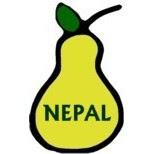Cashing it big on children (Nepali Times)
Adoption is just one part of the larger trafficking problem in Nepal
THOMAS BELL
FROM ISSUE #573 (30 SEPT 2011 – 06 OCT 2011)
Hundreds of orphanages in Nepal are being run as businesses, filled with children who would have been left with their families if orphanage owners weren’t making money by keeping them in homes.
Child rights organisations estimate that there are about 15,000 children in orphanages although the number is difficult to track because disreputable owners move children around to avoid scrutiny. Many have been lured away from poor families, especially in remote districts such as Humla (see overleaf), with promises of education in Kathmandu.
That practice is familiar from the adoption racket, which saw fake “orphans” matched up with Western parents who paid thousands of dollars to adopt a Nepali child. Farid Ait-Mansour of Next Generation Nepal says: “Everything is linked. Adoption is just one part of the trafficking problem.”
Other children end up in prostitution, child labour or begging. “When there is no inter-country adoption the number of children [in orphanages] always decreases. They send the children elsewhere,” says Dharma Raj Shrestha, Director General of the government’s Central Child Welfare Board (CCWB). “Children who reached European countries may be lucky ones. Unfortunately, some children could have gone to India and Gulf countries. There is no proper record.”
With adoption currently frozen by a dozen Western countries due to rampant fraud, new revenue streams have emerged, like luring foreign volunteers to work in fake orphanages over the Internet. “It seems like a big source of income is foreign volunteers,” said one diplomat. “If it wasn’t for this income they would probably have been left with their families.”
According to another international: “You’ve got foreigners flying in, volunteering for short periods, sometimes with the best of intentions, sometimes with other intentions.”
There is no vetting or background checks of volunteers. Shrestha of the CCWB said that he is aware of cases of sexual abuse by “volunteers”. Next Generation Nepal has evidence of children sometimes kept in abject conditions to maximise donations from foreigners. Orphanage owners sometimes sell gifts of clothes and toys after the volunteer has left. Sometimes the children do not even receive the education which their parents were promised.
Several NGOs have withdrawn funding from the orphanage sector over fears that children are being unnecessarily institutionalised in money-making schemes. But a Google search reveals many private tour companies offering volunteering holidays in Nepal. The volunteer ends up paying thousands of dollars after arriving.
Several Thamel travel agencies have murky links with children’s homes in the capital. The CCWB has a list of 454 orphanages, most of them in the Kathmandu Valley, although they admit there could be many unregistered ones.
“Pokhara and Chitwan are also dangerously populated by child care homes,” says Shrestha, whose agency grades homes A-D for their standard of care, and most of them fall in the C and D categories. He says influential orphanage owners have good contact with the donors in Europe, a steady flow of funds, and want a loose easy-going policy from the government. Nepali businessmen often roam through Europe making contacts with potential donors for their fake orphanages.
The government has no effective policy on children’s homes. There is no proper method of assessment in cases where a child may actually need to be put in an orphanage. No orphanages in Nepal, including Bal Mandir, receive any government funding so they are forced to look elsewhere to raise cash.
Shrestha says that some of the most abusive orphanages urgently need to be shut down the CCWB rarely acts because they have no-where to put the rescued children. “There are some good orphanages,” admits Shrestha. Asked what happens in the bad ones he reels off a list: physical punishment, torture, sexual abuse, begging duty on the street, one meal a day, no treatment when they fall sick, no schooling.
Ethics, Transparency, Support
~ What All Adoptions Deserve.
http://www.pear-now.org/
